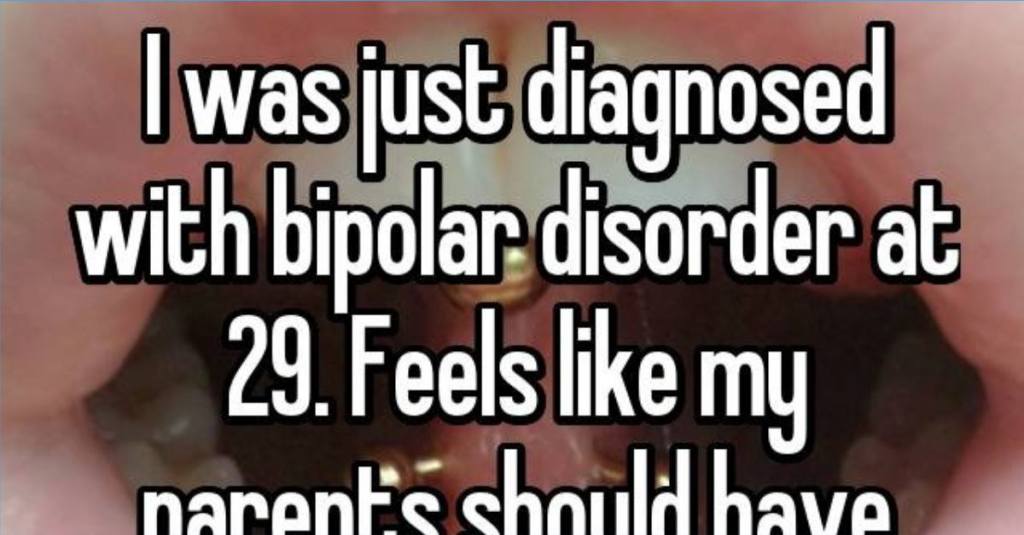Getting an unexpected medical diagnosis can be hard, no matter the diagnosis. Of course with the internet and the ease of self-diagnosis, getting an actual professional diagnosis can also sometimes be a relief.
It’s trickier when it comes to mental health. I’ve had friends experience tremendous relief at adult ADHD diagnoses, because finally they feel validated for their struggles.
A Bipolar diagnosis could be a little like that. It’s big and scary, but for some people it’s also finally an answer.
Bipolar disorder, which used to be more commonly known as manic depression, often finally gets diagnosed in a person’s mid-20s though symptoms can develop much younger.
It can have a genetic component, and affects about 1% of the population (2.3 million people in the U.S.).
Like many diagnoses, bipolar disorder is not always an easy one to accept, as these 12 patients can attest.
1. It’s confusing, especially when it’s a contradiction
If you spend your whole life thinking you understand yourself, a new diagnosis can come out of the blue.
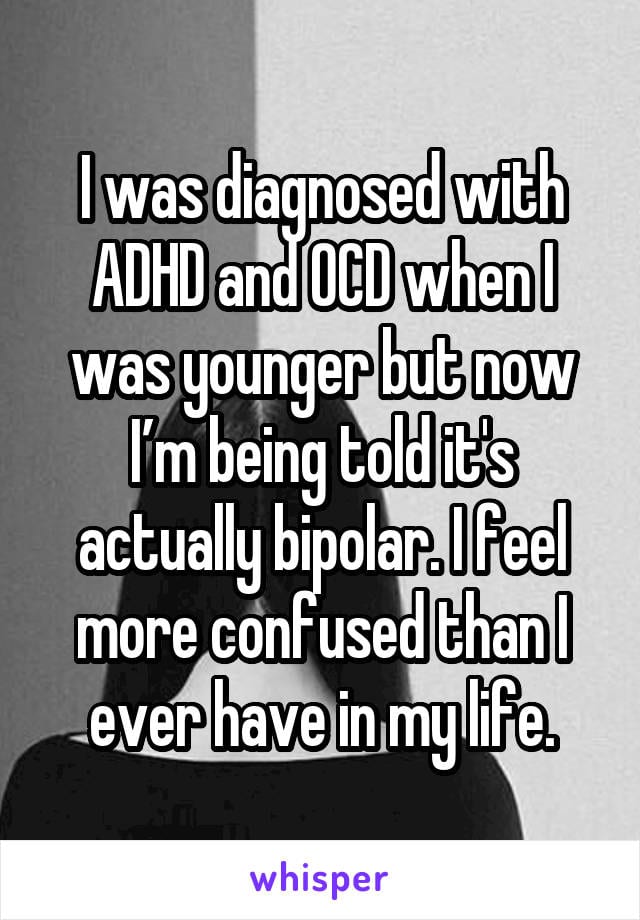
Image credit: Whisper
2. There’s a fine line between moody and mood disorder
But honestly this feels like a pretty healthy way of dealing with it.
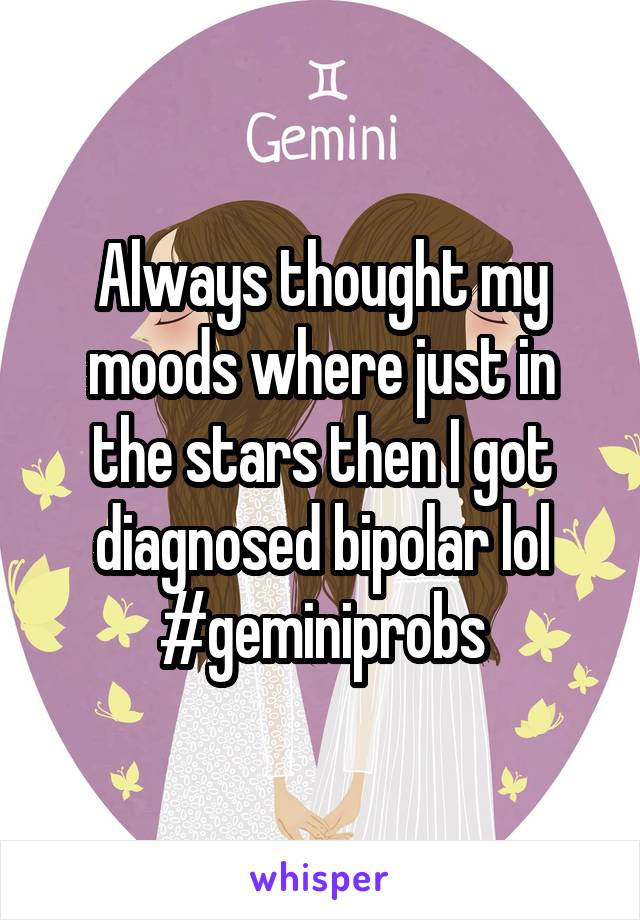
Image credit: Whisper
3. Even for tough military types, it can be scary
It doesn’t help that there’s such misunderstanding and stigma around it.
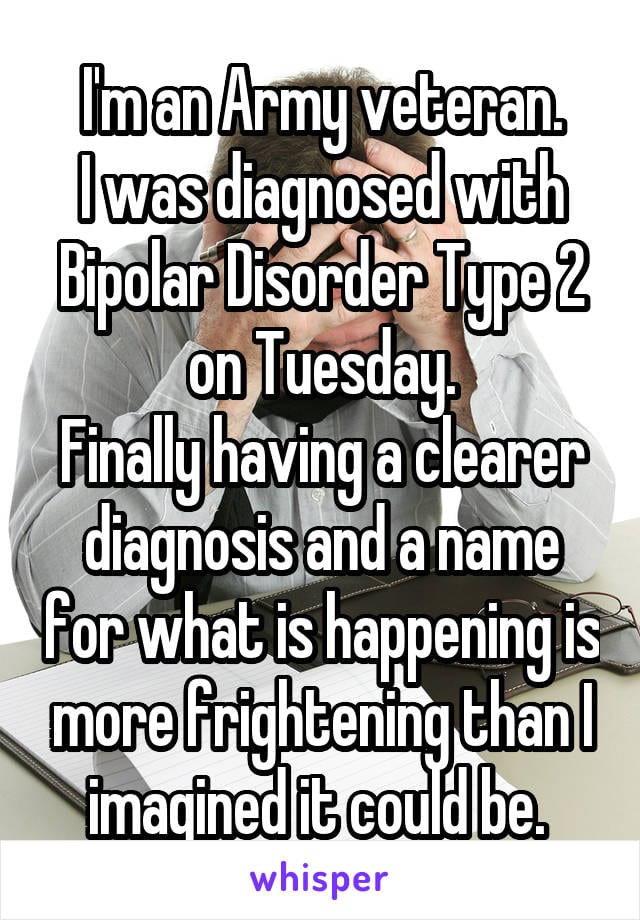
Image credit: Whisper
4. It can also be hard to accept
Honestly, it’s just a lot to take in.
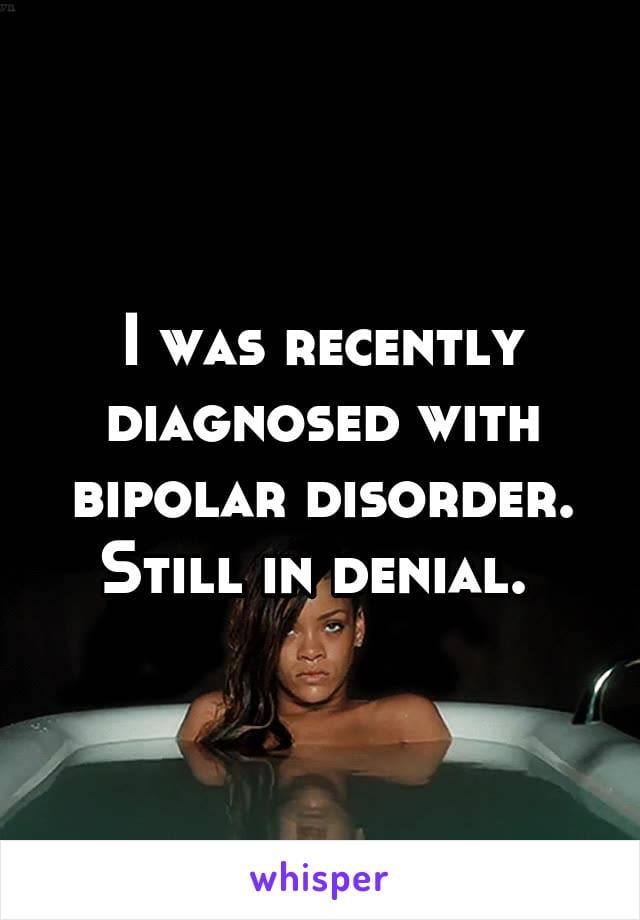
Image credit: Whisper
5. Even though it’s scary, it can explain a lot
Hopefully there’s at least some comfort in that.
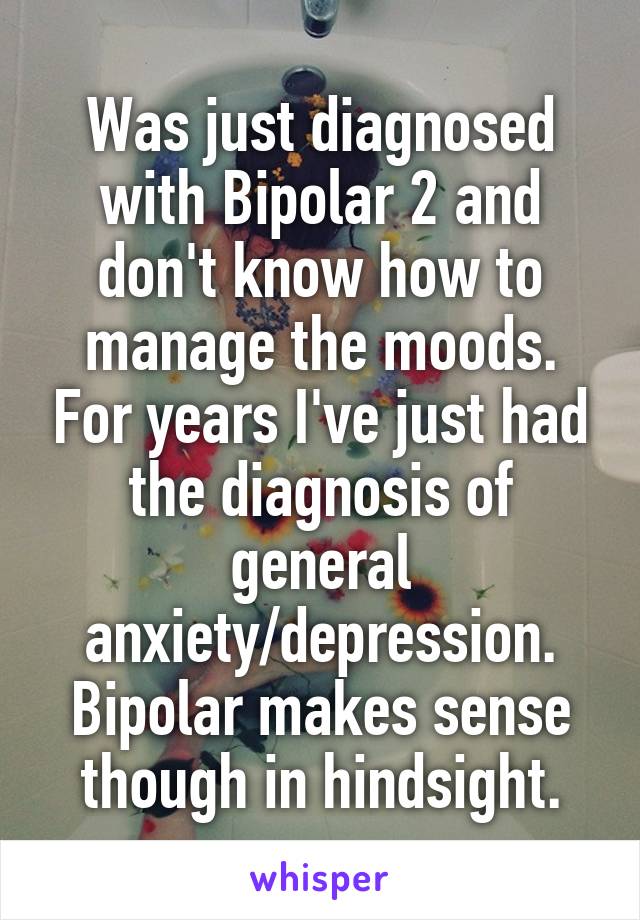
Image credit: Whisper
6. Facing your own prejudices can be hard
Especially when you know how widely held they might be.
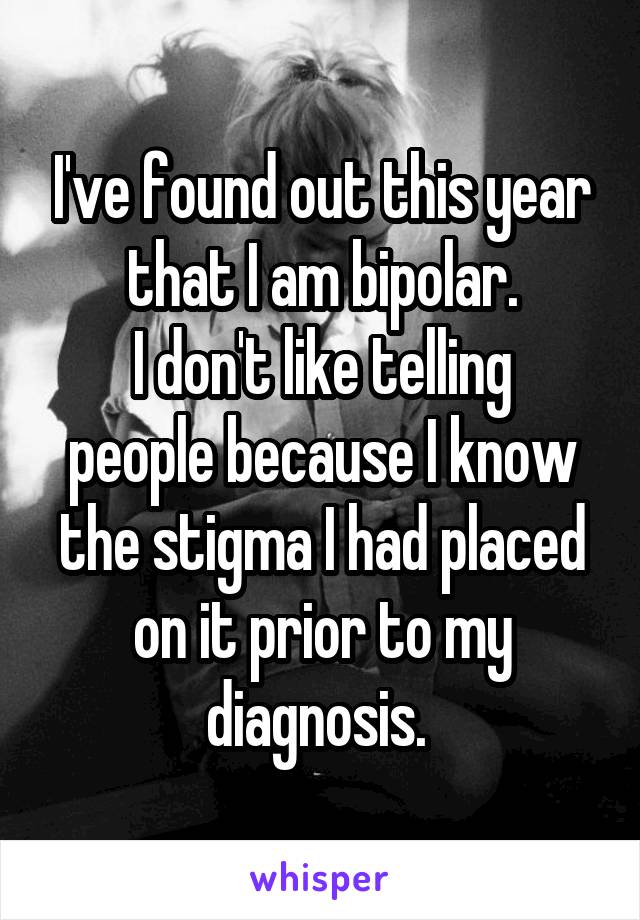
Image credit: Whisper
7. That stigma can even affect your relationships
What awful feelings to have to deal with, on top of everything.
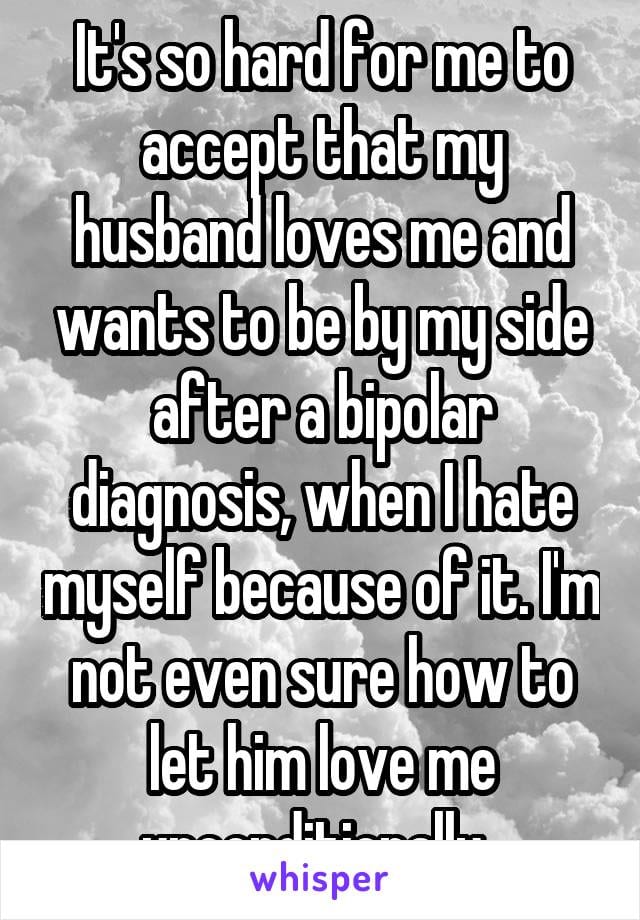
Image credit: Whisper
8. There was a time when depression was stigmatized
So maybe if we keep talking about it, bipolar will become more accepted too.
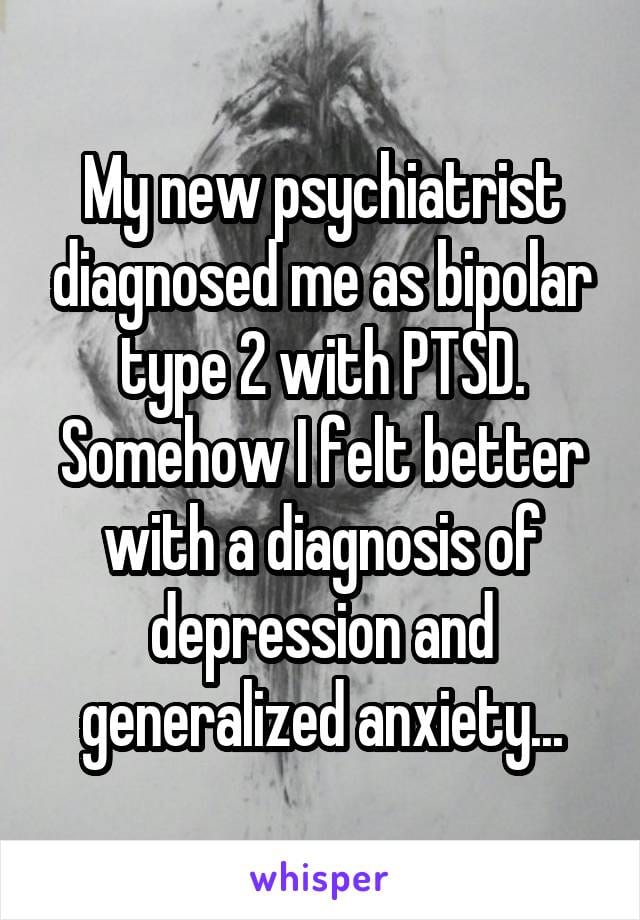
Image credit: Whisper
9. It can affect people from a young age
But at least that gives them time for a positive outcome.
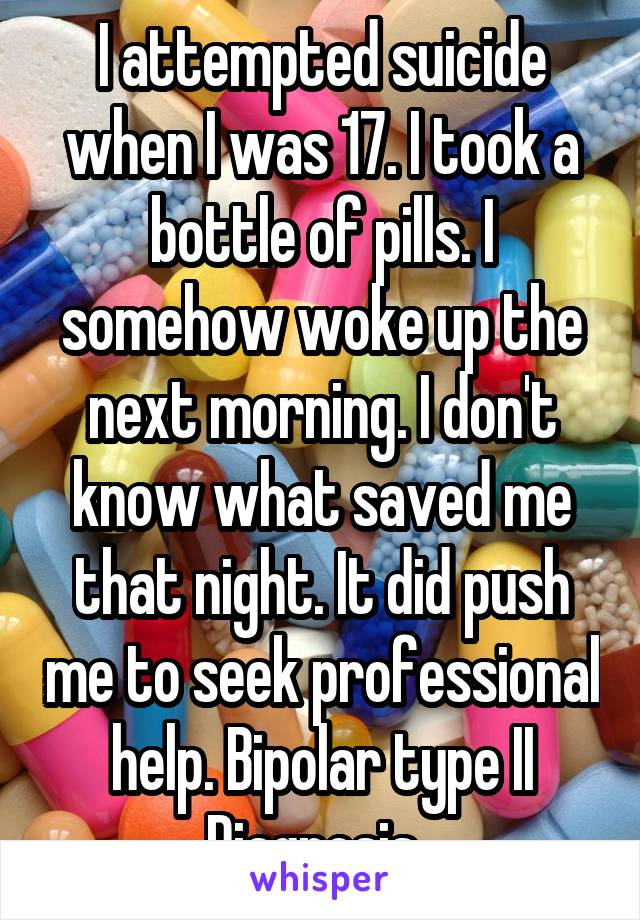
Image credit: Whisper
10. Other times, either the symptoms or diagnosis come later
And that can leave you with a lot of mixed feelings.
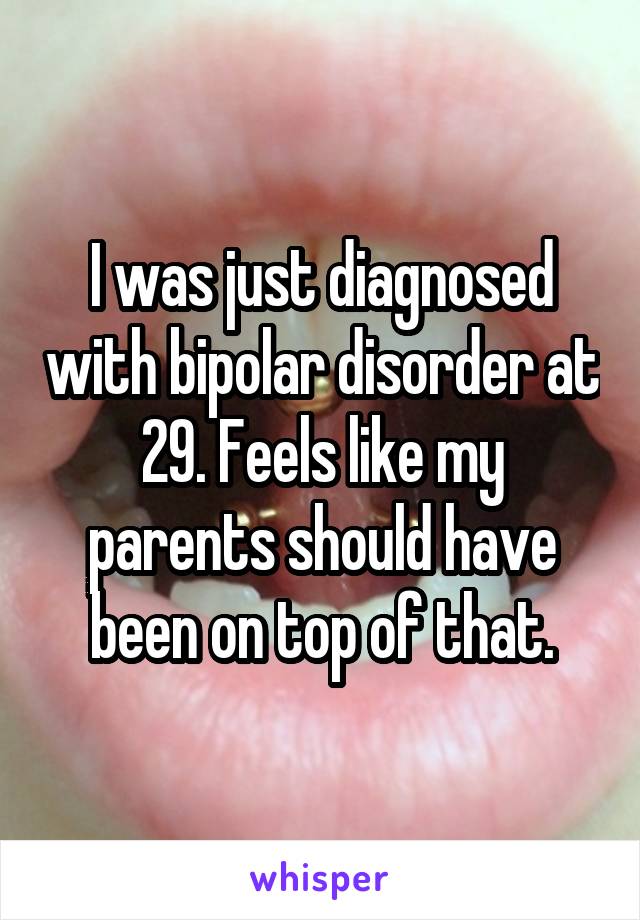
Image credit: Whisper
11. It can be a relief to have an accurate diagnosis
Leaving you feeling hopeful for the first time in a long time.
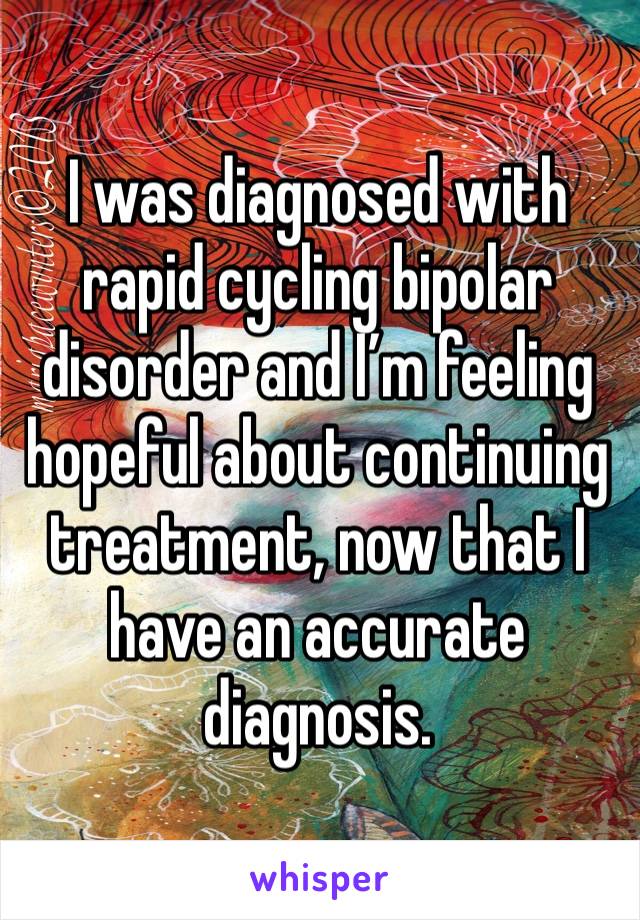
Image credit: Whisper
12. And it’s good when you can accept and embrace it
What a healthy, positive outlook. We should normalize this.
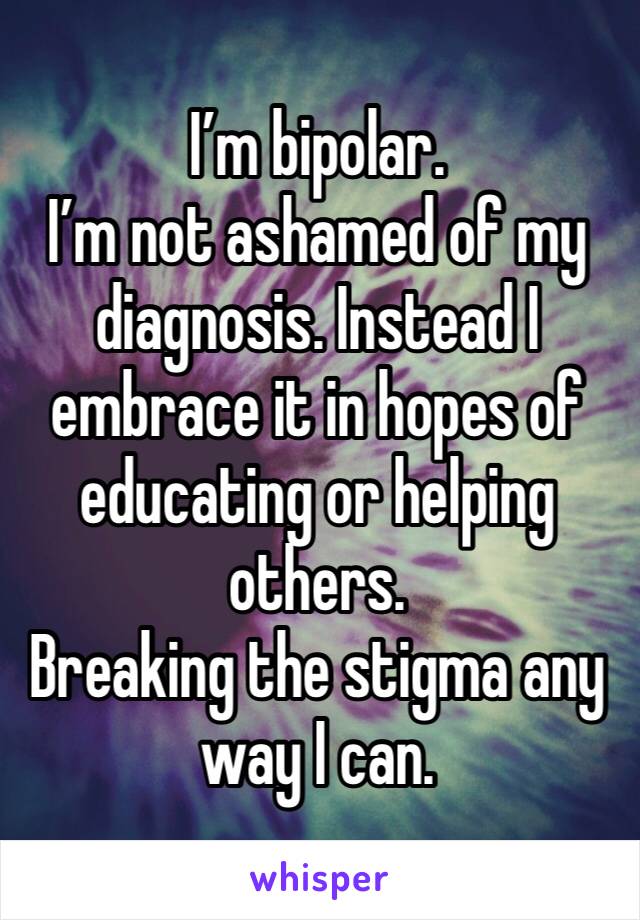
Image credit: Whisper
Honestly, this last post sums it up. People are afraid of what they don’t understand.
But the more we talk about it, the more people speak their truths, the better off the world will be.
Do you struggle with a condition that has a stigma attached? How do you deal with it? Share your strategies in the comments.

